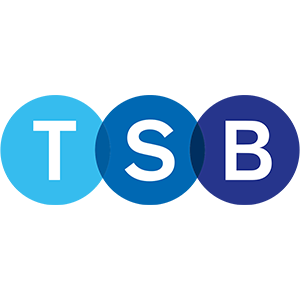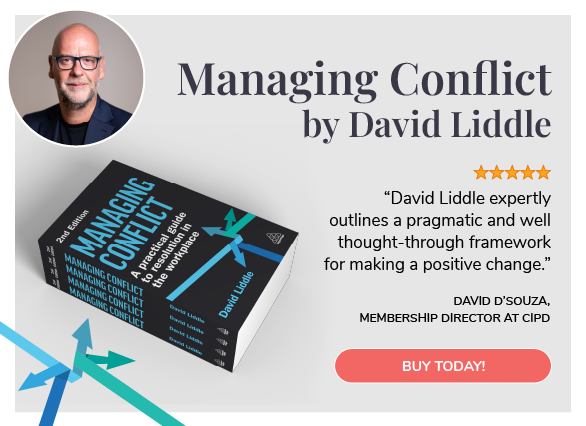

Download this case study


Read more case studies:
Resolution First Approach
Introduction
TSB is a retail bank with branch distribution that spans the entire of the UK, with a workforce of over 6,000 employees and a large supplier network. Its purpose is to deliver money confidence, for everyone, every day.
Tired of the traditional grievance processes and clunky, inaccessible policies, a strategic move to a ‘resolution first’ approach was advocated for by its Head of Employee Relations, Angela Gibson.
The TCM Group collaborated with TSB to take a refined approach to resolving conflict, complaints, and concerns.
This is one of the key strategic objectives under an overarching ‘Do What Matters’ plan, in support of their ambition to create a truly inclusive workplace. It is TSB’s first responsible business strategy which sets high standards for the bank and others.
“We weren’t an organisation that had a particularly high number of cases, but what we do know is that 80% of these cases weren’t being upheld. So, individuals who had got to the point where they felt the only means of finding an outcome to their issue was to speak up, were faced with a negative outcome to their issue.”
In 2019, for example,
- 68 grievances were lodged, with each one taking an average of 37 days to conclude.
- 20 bullying and harassment cases were raised, with a 48-day average completion time.
This prolonged stressful situations and created anxiety for everyone impacted and involved a significant amount of HR and management time to manage and support.
Making Resolution
With the help of The TCM Group, TSB has significantly altered its approach to the management of conflict, moving away from divisive and unwieldy formal policies, towards a Resolution Framework. This alternative approach, which is fully legally compliant, provides a collaborative and robust system for resolving complaints, grievance, and disciplinary issues fairly, and wherever possible, informally, through open, honest dialogue, facilitated conversations and mediation. Recourse to formal sanctions is still available in the rare instances where these may be required. TCM worked closely with TSB to finetune the framework, process, and supporting engagement materials
“We wanted to flip the traditional procedural mechanisms on their head. We wanted to create policies that empowered, invited and encouraged people to display the behaviours that we wanted within our organisation.”
Stakeholder support:
The business case to move to a Resolution Framework was presented to TSB’s Executive Committee, who gave it their full endorsement. The two recognised unions, Accord and Unite, were involved in discussions from the earliest stage, and fully supported the concept of giving colleagues the opportunity to address issues in an open and transparent way. Several managers, including some from the branch network and operational teams, were involved in the project group, helping to shape the policy and resources required to support it, as were members of The Link group, an employee forum of 125 colleagues. A group of 16 HR managers and union reps also attended TCM’s two day ‘Routes to Resolution’ training programme, to help them develop an indepth understanding of the concept.
The launch:
The planned launch of the Resolution Framework coincided with the emergence of the Covid-19 pandemic, but the business felt it was such an important initiative that it shouldn’t be put on hold.
There was a two-week delay to the planned go live date, to allow for business-critical communication, and then the framework was launched, with the first mediation taking place, in the virtual space, within weeks. One of the key messages to colleagues was that although any grievance cases currently in progress could continue, they would be given an option to switch to the new approach.
To help colleagues understand the new Resolution Framework, TSB’s Employee Relations team developed an interactive, digital toolkit accessible internally, and app-enabled via external digital devices (phone, iPad etc.). This informs colleagues of the key stages of the framework as well as how they can expect to be supported throughout.
Learning and development:
The new approach to conflict resolution has been embedded in learning interventions. An HR priority for 2021 has been to ensure all managers (c1k) are equipped to manage teams with better management of their biases and basic mediation techniques. All managers must complete the TSB Manager Programme, which includes a module on ‘working things out’, where participants are asked to work through scenarios, such as a potential bullying situation, to test and learn from potential responses. They are also given an overview of how mediation works in practice.
TSB sought out volunteers to become internal mediators, with a group of 20 from a variety of roles and grades undergoing TCM’s benchmark workplace mediation qualification.
Refresher training is further offered to existing mediators. By the end of 2020, around half of all managers had also completed training in mental health awareness and inclusive behaviours.
Impacting Culture
The new approach to managing conflict is proving to be transformational – and is fully in support of TSB’s drive to become a truly inclusive organisation where people feel they can speak freely and are treated fairly and with respect.
TSB has sought to measure the impact on its culture. In its latest ‘Your Say Matters’ survey:
Confidence levels in managers who have completed training is up in key areas, i.e., a rise of 3.9 to 4.56 on the ‘working things out’ module. Overall engagement scores are up 3 points since November 2019, despite Covid-19 and the fact that the survey was run soon after a significant restructuring announcement. The engagement survey also showed that managers who had done the bias/mediation training were more likely to describe the culture of their teams in positive terms.
Feedback from those involved in delivering the Resolution Framework suggests that the mediation process is resulting in an opportunity for colleagues to reach agreement on how to respect each other at work; to develop an understanding of how their behaviours are impacting others and to come to mutual understandings in areas where there had been miscommunication/ misinterpretation. In 2020, since the Resolution Framework was introduced, the number of conflict scenarios has reduced to 16.
“The greatest feedback we had was that individuals felt so empowered and proud. Many said that mediation training was the best training they had ever done; it gave them life skills as well as mediation skills.”
Looking Forward
Whilst it’s important to analyse data to inform ongoing strategy, TSB apply an approach of keeping concepts and principles simple. They aim to continue building in bite-sized chunks and adopt holistic measures that work together towards a common goal. Senior stakeholder endorsement is essential from the outset too. TSB also embed a review approach to enable changes to become genuine organisational habits, not just intention.
By empowering their staff with communicative principles, TSB continues to drive an inclusive organisation.
“We want people to speak up, and when they do, without fear of retribution, we will have a solution to support them. We have been through an extremely tough year, and we’re proud of the fact that conflict within our organisation has not risen during this time because of our speak up policy.”





